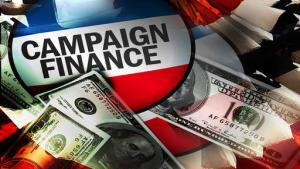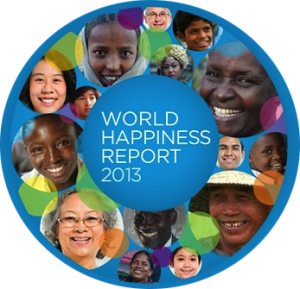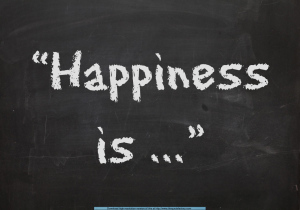Randy Lewis's Blog
August 22, 2018
Hello world!
Welcome to WordPress. This is your first post. Edit or delete it, then start writing!
September 1, 2016
How to Start a Company to Hire People with Autism
Parents in Common
I have never met John D’eri, but it seems as if I have known him for years. We share the same dream that our sons—Austin Lewis and Andrew D’eri—will have a life filled with hope and love despite their struggles with autism. John and I know that a job opens new doors and brighter futures for people with disability, especially those on the autism spectrum.
A few years back, we talked on the phone about his family’s plans to open a car wash and employ people with developmental disabilities. In the beginning, John knew little about the car wash industry or where he could find, train, and employ people with autism. He wasn’t sure of the problems the new company might face or if his efforts would be successful. Nevertheless, John believed that too many people with capability were left out of employment and society, especially those within the autism spectrum.
As someone who has struggled with opening doors for those with disabilities, I understood his concerns, but applauded his determination to succeed, whatever roadblocks might arise. With John as CEO and Andrew’s brother Tom as COO, they proceeded on faith that they could succeed.
The New Business
Like most new businesses, success did not happen for the Rising Tide Car Wash overnight. Through setbacks and disappointments—some anticipated and others a surprise—John and Tom learned the business and the elements to build a successful business with employees on the autism spectrum.
Today, the company located in Parkland, Florida services 150 vehicles per day, over 150,000 in a year. Thirty-five of the forty-three employees are people with autism. A second location is in the works.
Helping Others to Start Their Own Businesses
Rather than spend his energy on building a national chain or establishing company franchises, Tom—the day-to-day manager of the business—decided to tell others about their experience. By doing so, they hoped other Johns, Toms, Bills, and Mikes would also open their own businesses and employ people with a disability, especially autism.
Working with professionals at the University of Miami’s Center for Autism and Related Disorders, Tom documented the process with the lessons learned from his own experiences—the good and bad, triumphs and missteps—to start a new business that employed people with autism. The process became the basis for a curriculum and workshop for others who might be interested in starting a new business.
Awakening the Autism Entrepreneur Workshop
When Tom called me early in the summer with plans for a multi-city tour with the workshop, I jumped on the opportunity to invite him to Chicago. Other Chicago-area organizations and agencies were happy to join the effort, helping get the word out to those who might be interested and participate in the workshop. The workshop is a unique opportunity to learn the many resources available to help those with disability, especially autism in the Chicago metroplex. The agenda focuses on the real obstacles that might arise and the best steps to avoid or overcome them.
Chicago September 16 or 17, 2016
The one-day seminar will be held two separate days – Friday, September 16 and Saturday, September 17 – downtown Chicago. The fee for attending is $15 per person and is used to provide a box lunch and refreshments during the meeting. Please visit our website for more information and pre-registration.
February 25, 2015
A Public Responsibility to Immunize Your Child
 With the latest outbreak of measles, there is lots of talk about mandatory vaccinations and parents’ rights in determining whether or not their children get vaccinated or not. It seems vaccinations boils down to two different questions:
With the latest outbreak of measles, there is lots of talk about mandatory vaccinations and parents’ rights in determining whether or not their children get vaccinated or not. It seems vaccinations boils down to two different questions:
Should Parents have the Right to Opt Out of Mandatory Vaccinations
Politicians, recognizing a potent political issue, have not been very helpful in shedding light on the legal issue. For example, Kentucky Senator Rand Paul recently said “The state doesn’t own your children. Parents own the children and it [vaccinations] is an issue of freedom and public health.” Aside from reaffirming who “owns” children, it could mean anything. Governor Chris Christie, another potential in the race for the Presidency in 2016, was less ambiguous, saying that immunizations are “a matter of personal choice”. The Supreme Court seems to differ.
The Constitution lays out a structure of government that reinforces our unalienable rights of life, liberty and the pursuit of happiness. However, these rights have always been tempered with the responsibility not to interfere with others’ unalienable rights. For example, my right to free speech does not extend to the freedom to falsely yell “Fire” in a crowded movie theater, an action that could result in panic and injuries to the others. We do not live in a vacuum. The Constitution was not written about the lives of individuals, but the lives we share in community. If we lived lives of isolation, there would be no need for a Constitution, individual rights, or laws.
The Supreme Court addressed this issue specifically when it ruled over a hundred years ago that the freedom of the individual must sometimes be subordinated to the common welfare and the community’s right to protect itself from disease. While there is no Federal law regarding mandatory vaccinations for children, all fifty states have existing statutes requiring inoculation with a variety of religious and health exemptions. One state’s program, New York’s compulsory vaccination requirements for public school children, was affirmed earlier this year by a Federal court.
In California where the latest measles outbreak has been reported, parents can opt out simply by filling out a form. This has led to pockets of high numbers of non-vaccinated children in certain communities. For instance, 6.5% of the children entering kindergarten in Marin County have been opted out of vaccinations by parents using personal exemptions.
Bottom line: States can require mandatory vaccinations while allowing exemptions for religious or medical reasons (as defined by each state).
The factual question: How safe are vaccinations?
In recent years, many anti-vaccinations proponents have claimed a causal link between vaccines and autism, primarily as the result of a now-discredited study by British physician Andrew Wakefield. Even so, parents remain wary especially when public officials like Senator Paul, an ophthalmologist, say things on TV like,”I have heard of many tragic cases of walking, talking normal children who wound up with profound mental disorders after vaccines.” When these remarks came under fire for lacking validity, the Senator later clarified his comment in a statement: “I did not say vaccines caused disorders, just that they were temporally related—I did not allege causation. I support vaccines, I receive them myself and I had all of my children vaccinated.”
Medical and public health organization agree: there is no link between vaccinations and autism. As the father of an autistic son, I understand a parent’s fear of autism. I have shared their frantic search for an answer as to why their child is afflicted and other children are not. I too have spent night after night, unable to sleep wondering what I had done or not done that affected my child so adversely. I still search for answers, but I am certain that his childhood immunizations were not the cause.
Another concern of parents is that some people and children may have an allergic or adverse reaction (anaphylaxis) to vaccine ingredients. While adverse reaction is possible, it is also highly unlikely. The Centers for Disease Control reports about 30,000 cases annually—approximately one per million vaccinations—of which 3,500 are classified as “serious”. By contrast, common aspirin is a thousand times more likely to cause an adverse reaction than the typical vaccine (1200 cases per million exposures).
Some opponents to vaccinations claim that the ingredients within vaccines are harmful including thimersol, formaldehyde, and aluminum. However, they overlook the fact that the suspicious substances have either been removed or reduced to trace amounts from all vaccines in recent years. Today, the typical child is exposed to more bacteria, viruses, toxins, and other harmful substances in a single day of normal activity than are found in vaccines.
Every major medical organization including the Centers for Disease Control. The Food and Drug Administration, Institute of Medicine, American Medical Association, American Academy of Pediatrics, and the American Academy of Family Physicians confirm “vaccines are safe.”
Finally, vaccinations save children’s lives. In the last ten years alone, the CDC estimates that 732,000 American children were saved from death, and 322 million cases of illness were prevented. Measles cases have dropped by 74%, smallpox and polio have almost disappeared in the United States while deaths from measles, mumps, rubella, and Hib have been reduced 99% by vaccinations.
Bottomline: Vaccinations do a lot more good than harm.
Where Do We Go From Here?
To be fair, parents who are adamant that their children forego vaccinations love their children as much as those parents who vaccinate. I hope those who choose to forgo vaccinations consider others’ children who cannot be vaccinated and who are left unprotected. Or would they feel the same way were it polio?
Learn more:
Kentucky Senator Rand Paul’s statement of who owns children on CNBC February 3, 2015
The question of compulsory vaccination was contested in a Supreme Court case in 1905. The Court, by a 7-2 majority, ruled that the freedom of the individual must sometimes be subordinated to the common welfare and the community’s right to protect itself from disease.
New York’s right to require vaccination before attending public school was most recently upheld by a three-judge panel of the United States Court of Appeals for the Second Circuit early in 2015.
California personal exemption form
Data on immunizations by states and use of personal, medical and religious exemptions
Austism vaccination link discredited
Anderson Cooper interview over concerns with mercury in immunizations
CNN report on safety of immunizations
February 24, 2015
My TED Talk
In a world where those with mental and physical disabilities are seen as “disabled,” what would it take to not only have those individuals contribute, but to also give them the same expectations, goals, and work at the same wage as those without disabilities? Can we actually design a system so creative that we can demand the same results from those with disabilities as those without disabilities? What could that system possibly look like and could it actually create value for a company?
February 13, 2015
The Power of Light
 In January of 2015, the financial budget for the political activities of the Wichita, Kansas Koch brothers and their largely anonymous partners for the 2016 political Presidential and Congressional campaign was announced as close to $900 million, an amount rivaling the budgets of the established Republican and Democratic Parties. The money will be provided by the Kochs and approximately 300 billionaires and multi-millionaires they have recruited over the years. In 2012, the same network spent slightly under $400 million. Much of the money contributed is through non-profit organizations formed for political purposes and who are not required to disclose the identity of their contributors.
In January of 2015, the financial budget for the political activities of the Wichita, Kansas Koch brothers and their largely anonymous partners for the 2016 political Presidential and Congressional campaign was announced as close to $900 million, an amount rivaling the budgets of the established Republican and Democratic Parties. The money will be provided by the Kochs and approximately 300 billionaires and multi-millionaires they have recruited over the years. In 2012, the same network spent slightly under $400 million. Much of the money contributed is through non-profit organizations formed for political purposes and who are not required to disclose the identity of their contributors.
Crony Capitalism and Hidden Influences
Money and its ability to influence elected officials to pass favorable legislation benefitting the contributing donors—sometimes in visible opposition to the community’s interest as a whole—is one of the more seamy realities of politics. Since the beginning of the Republic, well-heeled citizens have sought to wrest financial benefits from the operation of law and the nation’s business. Crony capitalism—government favoritism between business people and government officials leading to special permits, grants, and tax breaks—exists in every political system of the world, more obviously in some economies than others.
Past efforts to control the influence of wealthy contributors have been largely ineffective. Whenever legislation has been adopted to curtail or expose the activities of rich donors, the laws are immediately attacked by Congressional representatives—bought and paid for by the monied interests—with efforts to repeal, delay, and weaken the laws’ effectiveness. Neither the donors nor their political allies are eager to expose their relationship or any quid pro quo that might exist between the two.
The relationship between candidates and their supporters is particularly relevant when the donations made and the benefits received in return are large. For example, no one realistically expects a contributor of $1000 in a Congressional race to have the same access and influence as the multimillionaire who contributes $100,000. At the same time, it is illogical that large donors do not expect payback for their funds. As a consequence, transparency of the relationship between donors and political officials and candidates is even more critical to the successful operation of democracy.
History has shown that there is no shortage of officials and candidates willing to sell their votes in return for financial bribes and support. At the same time, there is a paucity of significant donors who make political contributions to the public good alone. Everyone seeks to protect their own interests or is looking for a competitive edge. The current lack of transparency benefits the large-monied interests and the beneficiaries of their largess. It is one thing when an American Congressman votes to approve the controversial Keystone Pipeline extension because it helps a business in his district and quite another when his sole motivation is to gain unlimited political contributions from those who will benefit the most financially.
Follow the Money
As old-time detectives are fond of saying when trying to solve a crime, one of the first objectives in the information-gathering process is to “follow the money.” In other words, personal advantage over others—whether it be higher profits, lower taxes or fewer regulations—is a powerful incentive to maintain a complicated, often obscure political contribution system. Unfortunately, the majority of citizens—those lacking the financial means to influence legislation—invariably lose rights and freedoms as a result.
Transparency is a powerful tool. The power of sunlight and total public exposure affects individuals, businesses, and citizens alike. By exposing relationships, the public is better able to distinguish the motives behind legislation and react accordingly. As my parents taught me as a young boy, don’t do anything that you are ashamed for other people to know. If you are worried about what people might think, you are probably doing something you should not be doing.
I don’t think it is possible to shut or even reduce the flow of funds from powerful forces to elected officials. However, it seems reasonable that transparency—exposure of transactions and relationships—should be at least a minimum requirement for any political contribution at any level. A strong democracy needs a level playing field between the participants and the beneficiaries of the political system. I would also ask donors: Why are you opposed to public disclosures of your political activities? Are you ashamed of your activity or any consequences that might result if your support becomes public?
What do you think? Are existing laws sufficient to protect the Republic? Would knowing who supports a particular politician be a benefit or a disadvantage to you? Would it change the candidates home you support?
February 6, 2015
When is Enough enough?
 “Nothing is enough for the man to whom enough is too little,” advised Washington Irving (1783-1859), a first generation of Americans named after President George Washington. Irving was one of the first American writers to win world acclaim. He was a unique combination of author and diplomat; his literary successes included “Rip Van Winkle” and “The Legend of Sleepy Hollow” as well as biographies of George Washington and the prophet Muhammad. He also served as the Secretary of the American delegation to London and served as the Minister to Spain under President John Tyler.
“Nothing is enough for the man to whom enough is too little,” advised Washington Irving (1783-1859), a first generation of Americans named after President George Washington. Irving was one of the first American writers to win world acclaim. He was a unique combination of author and diplomat; his literary successes included “Rip Van Winkle” and “The Legend of Sleepy Hollow” as well as biographies of George Washington and the prophet Muhammad. He also served as the Secretary of the American delegation to London and served as the Minister to Spain under President John Tyler.
While history does not indicate the person to whom Irving was referring, his quote could easily have referred to the life and morals of another famous American, Cornelius Vanderbilt (1794-1877), who lived about the same time as Irving. Vanderbilt ultimately became one of the richest men in the country, dominating the transportation industry with his ownership of steamships and railroads. At death in 1877, his wealth was estimated to be $100 million, the equivalent of $143 billion in 2007. By comparison, his modern equivalent, Bill Gates, had an estimated net worth in 2014 of $81 billion. Vanderbilt’s entire estate was willed to his family without deduction for any charities or estate taxes, creating one of America’s first extraordinary family fortunes.
Vanderbilt represented the emerging American businessmanself-taught, self-made, ruthless, and focused on building wealth and powerwho began to dominate the world’s economies. Like other powerful businessmen of the era, they considered ethics primarily for others or public consumption without application in their own lives. While they preferred to negotiate on friendly terms (since it was faster and easier, they were not adverse to buying off politicians, double-crossing partners, or using the friendly police to break strikes or intimidate workers.
According to a New York Times article, Vanderbilt was a “notoriously hard man” who had little room in his heart for charity and none at all for guilt. He admitted that he had been “insane on the subject of moneymaking all my life” and had little concern about laws that might limit his growing wealth. When asked if he worried about the Government’s reaction to his monopolistic tactics, he responded, “What do I care about the law? Ain’t I got the power?”
Rather than suing those who he thought had wronged him, Vanderbilt’s practice was to ruin his enemies, punishing them and their families with no mercy. Not surprisingly, Vanderbilt, though feared, was the often vilified for his tactics and considered to the poster boy of the Robber Baron elite. His son and 95% heir, William (Billy) Vanderbilt was equally arrogant, having learned his business skills from his father. When publicly questioned in the newspapers about the public’s reaction to doubling the price of transit fare, Billy famously declared, “The public be damned.” A chip off the old block, Billy carried on his father’s legacy, doubling the family wealth in his lifetime.
What drives men like Cornelius and William Vanderbilt to pursue such levels of wealth that it persists long after their death or the deaths of their children and grandchildren? What makes men practice cutthroat business tacticsdishonesty, cheating, lying, disloyalty, theft, inequality, even murderfor another dollar of revenues or profits? If wealth makes you happy, does more wealth makes you happier? As Irving asks, how much is enough?
The link between wealth and happiness has been the subject of numerous studies. A 2006 study suggested that happiness and wealth go hand-in-hand until reaching an annual income of $70,000 ($151,000 in 2014), but there appeared to be no correlation after reaching the $70,000 income level. Nobel laureate psychologist, co-author of the 2006 study, and Princeton professor Daniel Kahneman claimed that people with above-average incomes are relatively satisfied with their lives but are barely happier than others in moment-to-moment experience. They also tend to be more tense and spend less time in enjoyable activities. At Vanderbilt’s death, the estate was tied up for years with family lawsuits. As far the benefits of the inheritance to his children and grandchildren, grandson William Kissam Vanderbilt said, “Inherited wealth is a real handicap to happiness…It has left me with nothing to hope for, with nothing definite to seek or strive for.”
As for me, I realized a long time ago that a future as a nationally-known tycoon, jet-setting around the world with legions of retainers to satisfy any conceivable want was not for me. The cost to pursue wealth was simply too high when compared to the benefits of privacy, more family time, and less hassle and worry keeping up with my investments. Dropping out of the asset competition has helped me overcome or avoid the psychological stressors of greed, envy, and jealousy that frequently accompanies wealth accumulation and plagues every human being to some extent.
More recent happiness/income studies suggest that the amount of money you have is less important to your happiness than how you spend it. According to a Wall Street Journal article, giving money away makes people happier than lavishing it on themselves. And spending money to buy experiences and recover memories is more satisfying than purchasing assets. Whether you are starting a career or ready to retire, it is important to realize what will make you happy and pursue those conditions and experiences than wealth itself. As rich men and women invariably discover, hearses do not pull U-Hauls to grave sites.
American Sniper
 Who was Chris Kyle? Was he a conflicted hero superbly portrayed by Bradley Cooper in Clint Eastwood’s film or the thuggish psychopath of his ghost-written autobiography? Certainly, he has become one of the more controversial characters of his generation.
Who was Chris Kyle? Was he a conflicted hero superbly portrayed by Bradley Cooper in Clint Eastwood’s film or the thuggish psychopath of his ghost-written autobiography? Certainly, he has become one of the more controversial characters of his generation.
To those who hate war and disagree with our involvement in the midst of Middle East politics, Kyle represents everything that is wrong with our violent societya gun nut who takes pride in killing and sees others as stereotypes and targets. As he stated when he wondered how he would feel about killing someone, “It’s no big deal.”
On the other hand, to the ultra patriots and those who believe that Islam is an evil religion and its followers are equally without human virtues, Kyle was a true American hero willing to do whatever it takes to protect the country and its Christian values.
I suspect that neither characterization is completely true. To me, Kyle was as much a victim of war as those who fell under the crosshairs of his scope. It is hard for me to believe that a sane person can easily reconcile killing 160 human beings, even though the shootings might be justified. Taking another person’s life is against every moral and religious teaching in the world and is only overcome by extensive psychological conditioning. Men have always been willing to die for their nation; only a few are naturally ready to kill others.
According to research, ninety percent of the muskets recovered from the Battle of Gettysburg of the America’s Civil War were loaded, and more than half had undischarged multiple loads. Soldiers were brave, standing unflinchingly shoulder to shoulder with their comrades, clearly willing to die for their cause. However, the average soldier on either side would load his musket and bring it to his shoulders, but could not bring himself to pull the trigger to kill. Faced with the natural aversion to taking a life, he lowered the weapon and loaded it again, some soldiers repeatedlyone musket was found with 23 loads in the barrel. It is also believed that, of the small minority who did fire, most fired over the enemy’s head.
In 1946, the Army, in an effort to increase its killing efficiency, replaced firing at paper bull eyes with realistic man-shaped, pop-up targets that fall when hit. As a consequence of more effective psychological training, the rate of Americans firing their weapons during combat increased from fifteen to twenty percent in World War II to ninety-five percent in Viet Nam. At the same time, the number of victims of post-traumatic stress disorder (PTSD) has exploded.
In modern times, we ask more and more of our military, requiring them to return again and again to the same battle conditions. Chris Kyle had four tours of duty in Iraq between 2003 and 2009. Being a sniper, Kyle was forced to see the devastation of every shot he took. It is not difficult to imagine the psychological toil of his experiences.
For most of us, war is something we see on the television news while we sit safely in our air-conditioned home and enjoy the fruits of the world’s greatest economy. Rather than look too closely at the real cost paid by our veterans, we engage in jingoistic patriotism and chest-thumping, putting our veterans on display a couple of days a year while ignoring the physical and psychological needs of individual soldiers and their families trying to return to a measure of stability and security. We consistently refuse to fund Veterans programs or even require that the health benefits to a wounded soldier be efficient and effective. It is easier for most of us to pledge allegiance to the flag and cry at a soldier’s funeral than insist our Government recognize and fund the real cost of our wars.
Was Kyle a hero? Certainly to those soldiers he saved. But he and his family were also victims of a dysfunctional system who ask more of our young than we have the right to ask. Before you condemn or praise Kyle, pray for him and those like him. Remember their families who struggle unseen and ignored. And tell your Congressman you are willing to pay more taxes and go without to ensure that no American soldier is required to face death and killing without our country’s full emotional and financial support.
January 29, 2015
Reputation
 As the television news shows fill the air with stories of “DeflateGate” and the New England Patriots, I can’t help but feel that the team’s and Coach Belichek’s chickens are coming home to roost. Or St. Paul wrote in his letter to the Church at Galatia almost 2000 years ago, “For whatsoever a man soweth, that shall he also reap.” Certainly, the pounds of air pressure in a football has little real importance in the world beset by war, poverty, economic depression, and climatic disasters. Nevertheless, the episode is a classic example of the power of reputation.
As the television news shows fill the air with stories of “DeflateGate” and the New England Patriots, I can’t help but feel that the team’s and Coach Belichek’s chickens are coming home to roost. Or St. Paul wrote in his letter to the Church at Galatia almost 2000 years ago, “For whatsoever a man soweth, that shall he also reap.” Certainly, the pounds of air pressure in a football has little real importance in the world beset by war, poverty, economic depression, and climatic disasters. Nevertheless, the episode is a classic example of the power of reputation.
As a casual football fan, I have always enjoyed the professionalism of New England quarterback Tom Brady and I believe that Coach Belichek will be lauded as the most successful coach in the history of professional football when he finally hangs up his whistle. Over the past decade, New England’s five Super Bowl appearances and 2 World Championships are unmatched.
So when it comes to winning, there is no doubt that the Patriots and Belichek are at the top of the heap. However, when it comes to being counted amongst the greatest of teams and coaches, there may not be the same consensus amongst fans and observers. One of the main reasons is that as good as their record has been, fans everywhere are convinced the Patriots and their coach are cheaters. As good as Coach Belichek is with the Xs and Os of the game, he is clearly uncomfortable in front of the media, often impatient and bellicose. As a consequence of pushing the envelope on rules and being unapologetic about their actions, the team and coach have no reservoir of good will or trust in the public arena. In other words, no fan outside Massachusetts is willing to cut them any slack.
The image of the New England Patriots as a team that plays fast and loose with the rules began long before the present owner, coach, and quarterback were with the team, but has continued with several questionable incidents since:
The SnowPlow Game. In 1982, during a game between the Patriots and the Miami Dolphins, the Patriots coach Ron Meyer directed a snowplow operator to clear a space on the snow-covered field for placekicker Johne Smith to kick a winning field goal. Despite complaints from Dolphins coach Don Shula, the NFL was powerless to take action reversing the victory since there was no formal rule in place. While Commissioner Pete Rozelle agreed that the action was unfair, the Patriots were unapologetic, even hanging the snowplow in their current stadium to commemorate the victory.
Videotaping Opponents’ Play-calling Signals. In 2007, the Patriots were caught videotaping the New York Jets’ play-call signals. Apparently a common practice of the Patriots, videotaping is clearly against NFL rules and led to a Patriot fine of $250,000, the loss of a first-round draft choice, and a personal fine of $500,000 for Belichek.
Deceptive Practices. In the game prior to the now infamous DeflateGate, the Patriots introduced a new offensive formation intended to confuse and deceive the opponents. While technically legal, many observers including the opposing coach John Harbaugh of the Baltimore Ravens complained that they were not given enough time to determine which players were eligible to receive passes, and the tactic was unfair. The Patriots’ response was that their actions were within the letter of the law, if not the spirit.
No other team and coach seems to stimulate as much controversy as the Patriots and Belichek. While they resent the charge of “cheaters”, they have no one to blame but themselves. While team officials insist that the loss of pressure in the footballs was more likely the result of cold weather, the track record of the team leaves some doubt and will continue to taint the outcome of their games.
Each of us defines ourself and creates a legacy by the actions we take. Sometimes in the heat of the moment, we cross the line of good behavior and sportsmanship. Too often, our ethics betray us in the pursuit of a goal, whether a promotion, a sale or another reward. When we fail to control our excesses or ignore their detrimental effect upon others, we create a stereotype in the minds of others that can last a lifetime.
As you go through the days and years ahead, consider your actions and ethics. Are morality and honor simply outmoded concepts of a by-gone age or do they matter? What is your reputation? Trust is an extremely fragile quality. Once it is lost, it can be difficult, if not impossible, to restore.
ave no one to blame but themselves. Whether the loss of pressure in the footballs was more likely the result of cold weather as Coach Belichek claims or a nefarious act, the track record of the team leaves some doubt and will continue to taint the outcome of their games.
January 26, 2015
The World Happiness Report
 The first World Happiness Report was released in April of 2012 by the United Nations. According to Professor Jeffrey Sachs, Director of the Earth Institute at Columbia University and one of the report’s authors, “There is a rising worldwide demand that [government] policies be more closely aligned with what really matters to people as they themselves characterize their well-being.” The authors hope that systematic measurement and analysis of happiness will improve our sense of well-being. The second report was issued September 18, 2014.
The first World Happiness Report was released in April of 2012 by the United Nations. According to Professor Jeffrey Sachs, Director of the Earth Institute at Columbia University and one of the report’s authors, “There is a rising worldwide demand that [government] policies be more closely aligned with what really matters to people as they themselves characterize their well-being.” The authors hope that systematic measurement and analysis of happiness will improve our sense of well-being. The second report was issued September 18, 2014.
.
What makes us happy? Economists assert that higher income and consumption is critical, sociologists claim that social support—family and friends—is most influential, and psychologists stress mental health and a positive state of mind. All of these factors are important and influence a sense of happiness to a certain degree. However, I believe—and the authors of the report concur—that we overlook the contribution of social and ethical values to happiness.
It may be surprising to many that the United States ranked 17th among the 156 nations considered in the analysis, even though Americans have the highest per capita income in the world. Countries as Denmark, Norway, and Switzerland lead the survey.
According to the data, there are a number of factors that affect one’s feelings of happiness, especially mental illness. It is more influential on outlook than either income or employment. More than 400 million people suffer from chronic depression, and an additional 272 million have anxiety disorders. Unfortunately, less than a third of those affected—even in rich countries—receive treatment. It is hard if not impossible to feel happy if you are struggling with depression or anxiety. The Affordable Care Act (Obamacare) extended coverage for mental health coverage to individuals and small groups. However, loopholes in private health insurance plans and the unwillingness of individual states to expand Medicaid continues to leave Americans untreated. If we want to affect people’s feelings of well-being, we need to be sure that we have adequate policies in place to give people the help they require.
While mental illness affects a significant percentage of the population, happiness continues to elude the majority of people, even those who are unaffected by depression and anxiety. By nature, man is self-centered and selfish, a legacy of our evolutionary past where competition for survival dictated one’s behavior. As a consequence, many Americans continue to believe that wealth alone will lead to happiness. While it is true that a minimum level of income is necessary to feel secure, studies suggest that the marginal benefit of wealth is insignificant once basic needs are met.
Consider your life. What makes you feel good about yourself and positive about the future? Is it the square footage of your house or the pride you feel for your children? You may be happy when you buy that new car, but how long does it last? It is not surprising that philosophers and theologians from Buddha to Thomas Aquinas have rejected a materialistic lifestyle, teaching that happiness is more dependent upon doing good works, promoting the common good, and being in harmony with one’s surrounding.
Surveys like the World Happiness Report are important—even if they are flawed—because they encourage self-reflection and new conclusions about the priorities of life. As for me, I’ve learned that material possessions are less important than the relationships I enjoy with my family, friends, and community. Over the years, I have changed–I hope–to be a better husband, father, friend, and citizen. As a consequence, today is the happiest moment in my life, and I expect tomorrow to be even happier. How about you? Are you happy? Are you ready to change?
January 21, 2015
Happiness
What makes you happy? Is it the things you do, the people around you, or the places where you live and visit?
 There is no single answer that fits everyone. In fact, not even psychologists and philosophers agree on the definition of happiness or the best way to achieve it. And the argument has been going on for a long time.
There is no single answer that fits everyone. In fact, not even psychologists and philosophers agree on the definition of happiness or the best way to achieve it. And the argument has been going on for a long time.
Early Greek philosophers in the 5th century BC—known as “sophists”—identified happiness with pleasure and social success. In their teaching, moral goodness (virtue) and happiness were unrelated.
The idea that happiness is not the result of pleasure and success surfaced in the teachings of Socrates (470–399 BCE) who taught that happiness is obtainable through the actions we take. He recognized the distinction between body and soul, believing that each of us can learn to pacify our mind and achieve tranquility. His student Plato (428–348 BCE) argued that human beings cannot experience joy and happiness without being morally good. Plato’s student, Aristotle (384–322 BCE) expounded further that happiness is directly linked to virtue of character. Simply stated, Aristotle argued that happiness is doing the right thing, at the right time, and in the right way.
Ever since, the “Money Can’t Buy Me Love” (Beatles 1964) theme seems to have won the philosophical argument whenever it comes up with some notable commentators along the way in bombastic language like Thomas Jefferson (Our greatest happiness does not depend on the condition of life in which chance has placed us but is the result of a good conscience, good health, occupation, and freedom in all just pursuits). Or more simple terms like Gandhi (Happiness is when what you think, what you say, and what you do are in harmony.)
But when it comes to behavior, “Money” (Kingsmen 1964) might be a more fitting theme for our consumption driven society:
Money don’t get everything it’s true
But what it don’t get, I can’t use
Your lovin’ gives me a thrill
But your lovin’ don’t pay my bills
That is, we say one thing but act another. So are the rich happier? Next time we will look at actual data across the world to see if it true.
Randy Lewis's Blog
- Randy Lewis's profile
- 2 followers



